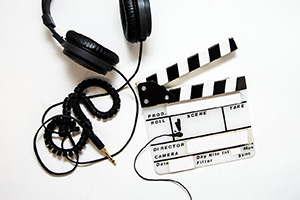James Kayler on directing Hard Cell
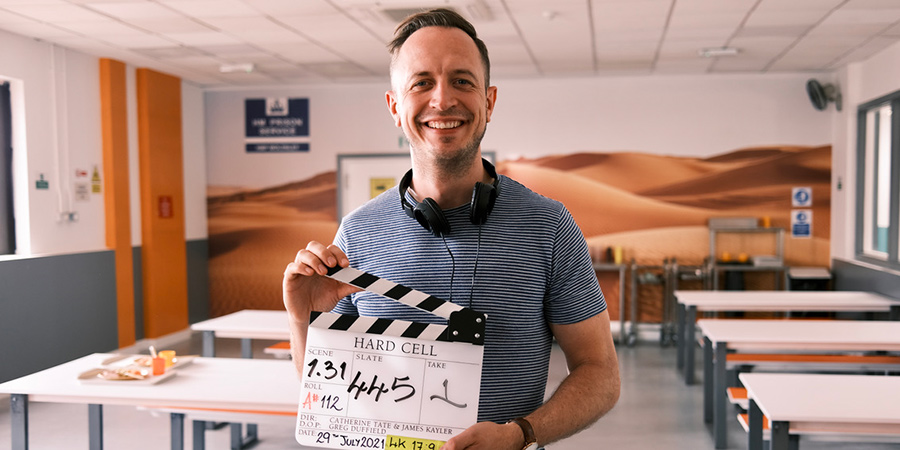
Director James Kayler has been making his mark on a number of TV comedy projects. His latest series is Hard Cell, the prison-based comedy series created by and starring Catherine Tate. Here he gives us an insight into what it is like to plan and film a TV show.
How did you become a comedy director?
It's something I feel like I always wanted to do. My sister was brought a JVC video camera for Christmas one year and I became obsessed with it and borrowed it whenever I could; I used to do these remakes of Hollywood films starring my family (don't ask me about the Basic Instinct), the first ones were terrible but just like anything you get better by practicing!
My love of comedy came from my dad, he would get me to listen to tapes of Hancock's Half Hour and watch Fawlty Towers and then we'd quote the lines back to each other. I was insistent that no one in the house mention the war, although I was so young I don't think I knew what the war actually was.
I had my first 'big break' when a short I made at college was chosen to be aired on BBC Two. Unfortunately, the screening was at 3.30am, although it did receive rave reviews from 3 of the 4 family members who stayed up to watch.
After uni I managed to get running jobs on music videos and ads and found a way to move up the ladder in reality television, eventually working up to director.
Throughout my career I tried to keep making comedy on the side because I realised that French & Saunders weren't going to hand over the reins of their next series to the director of Channel 5's Eddie Stobart Trucks And Trailers. Slowly I managed to build my network and get opportunities in comedy working on the likes of Harry Hill's Stars In Their Eyes and Celebrity Squares with Joe Wilkinson and Tim Vine.
What skills do you need as a director?
You have to be confident (or seem it), build a great team around you, and always be very willing to ask for help.
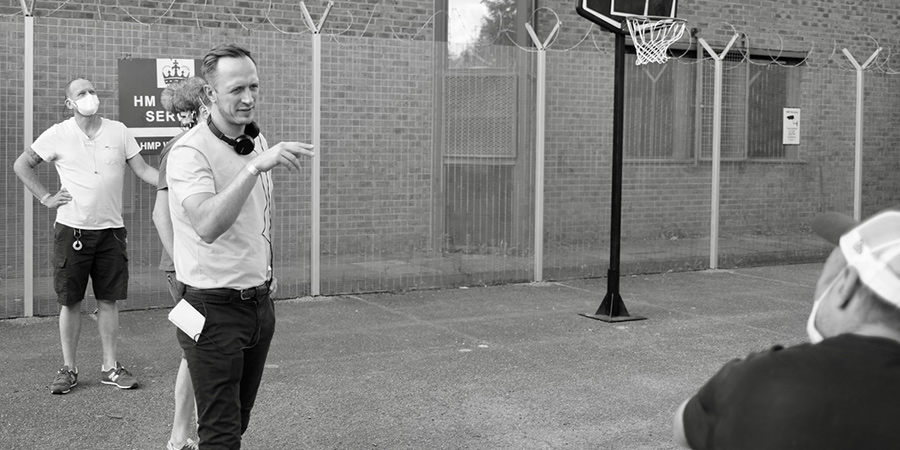
Filming days are very tight and the director needs to lead by example, be a good communicator and drive the shoot and vision forward.
Preparation is key and having a good eye is incredibly helpful, as you have to recce locations way before art or cameras or lighting are showing you what it will look like on screen... so you really need to have an idea of the frames you want for your story and imagine how they will look just using your imagination and crude drawings.
Finally, I would say you need to be likable enough to get people to do something that they don't want to do, like stay late, move a light again or get Hard Cell's Christian Brassington (who plays Dean) to be covered in sick for multiple takes.
How did you get the job on Hard Cell?
I was lucky enough to work with Catherine Tate on a sketch last year for Comic Relief - Nan meets Bond with the Daniel Craig. We had a great day making that, despite shooting in lockdown, meaning Catherine and I were at Pinewood on the Bond set (huge fan boy moment) and Daniel was in his office on Zoom (I felt like Q trying to teach him how to frame the shots and position a green screen).
Catherine was really pleased with how the sketch turned out and, when she needed someone to come and direct Hard Cell with her, I was very quick to say yes (I saved the screaming with joy for when she hung up the phone).
All I ever wanted to do was direct a sitcom, and to get to do it with a British comedy legend was beyond a dream. It helped too when I read the scripts and they turned out to be hilarious and joyous.
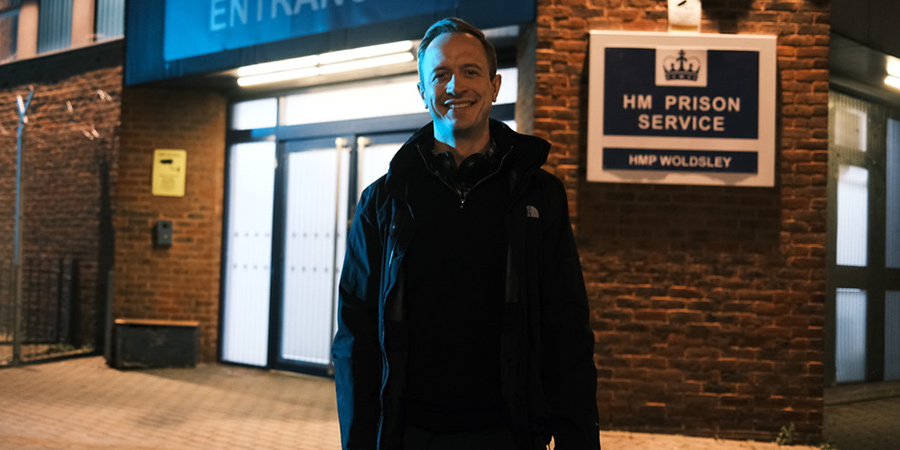
You and Catherine Tate are both directors on the project...
First of all, Catherine is a fantastic actor, she had so many lines and was in pretty much every scene and constantly nailed it, it was incredibly impressive, so my job was very easy.
Obviously having created the show she knew the script inside out and intimately knew where each character's headspace was at in every scene, so that was super helpful when we would discuss different choices for the characters and actors to take in certain scenes.
We also made some ground rules for the show in terms of what we were going for:
- It's a multi camera documentary, the crew have the scene covered so the camera doesn't need to be constantly whipping all over the place.
- We can drop the documentary feel when it adds to the comedy or story.
- Always go with the funny.
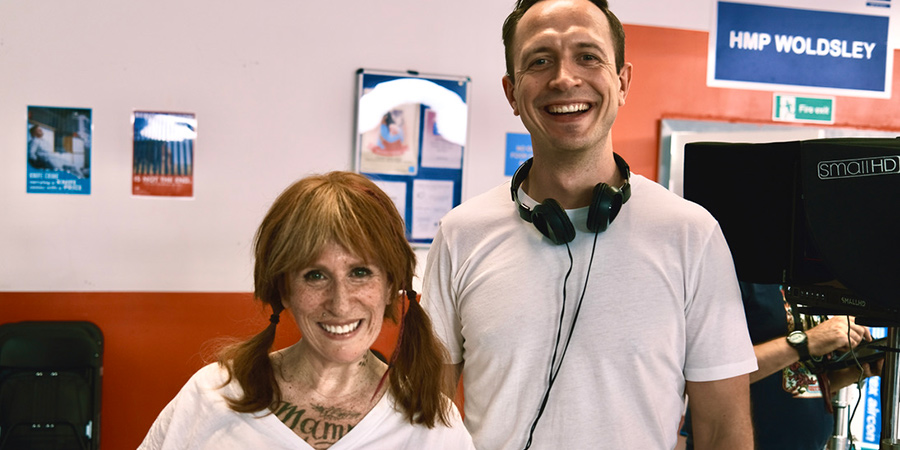
A big production like Hard Cell, especially one where the lead appears in multiple guises, must take a lot of pre-shoot planning? You can't just turn up on the day and work out what to do?
No you can't, that would make our brains explode.
In the rehearsal process there was a lot of blocking in terms of where the cast would be especially when Catherine was playing two (or more?!) roles in the same scene and location. It meant we couldn't figure out stuff on the fly, but I think our editors were grateful.
We also made use of our marvelous co-writer Niky Wardley (also playing Anastasia) as a stand-in for Catherine, because Niki knew the scenes so well she could play off Catherine and give the feeling of two actors creating a scene with one another even though it'll just be Catherine in the final edit. I did offer to help with the standing in, but Catherine found my forehead too distracting.
I should also give huge credit to the make-up and prosthetic team who worked tirelessly to transform Catherine into her 6 roles. A few of the characters had a minimum 2 hours transformation, and Catherine sometimes had to be on set at 5am to be ready for filming. Each character looked so naturally credible and when Catherine first stepped on set as Marco some of the supporting cast genuinely didn't realise it was her, their brains actually exploded (which did delay filming annoyingly).
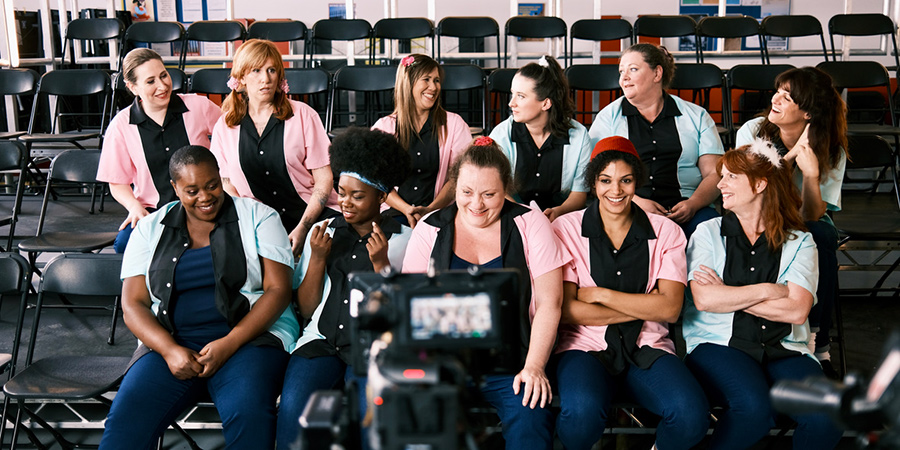
It always sounds like there's not enough time on TV sets to get things filmed. Is it tricky to balance getting all the scenes filmed and making sure each scene gets enough takes?
This is the hardest part about making any TV show. There is never enough time to do anything (let alone lunch) so you have to be smart about what you shoot and when you shoot it.
Jennie Fava, our producer extraordinaire, and I would meet daily about how best to beat the clock and get everything we needed in the time we had to shoot the series.
The rule of thumb is you should "aim for Hollywood in the morning and Hollyoaks in the afternoon". (No offence meant by this, especially to our wonderful writer Alex Carter who played Lee Hunter in Hollyoaks). I don't know why it is, but you always start slower at the beginning of the day so it's best to put your more important/complicated scenes in the morning. Then you finish the day in a mad scramble when you're an hour behind and losing light so it's really helpful if all you have to shoot is your dialogue light scenes, two characters not moving and just talking to each other.
In terms of the amount of takes, we'd try to keep them down to a few per camera angle due to the rehearsal process being quite vigorous, and then on set we rehearse each scene before we shoot it to get the performances nailed before we press record.
There must be a lot of dynamic problem-solving in the process of being a director. Can you give an example of something you had to adapt to/cope with during the Hard Cell shoot?
Problem solving is something that happens in everything you shoot. You constantly have to adapt, for example, on the Comic Relief sketch Daniel Craig couldn't get his green screen to stay on the wall using duct tape so he used a staple gun instead (his choice - sadly not a golden staple gun). There are thousands of conversations and communications that lead to micro-decisions that go into the prep before you start shooting anything and some things work and some things don't, you have to be ready for this, so always have a staple gun.
On Hard Cell, we had a real issue when shooting the slip-and-slide scene in Episode 2. Context: The inmates have stolen the extra hand sanitizer and water that Laura has ordered for the prison due to the plumbing breaking, they then decide to have their own slip-and-slide in a corridor.
We needed to film our cast all doing a slip-and-slide down said corridor. Our brilliant art team had practiced the scene off-set and it all worked great in the tests but when we came to shooting it, the water was draining beneath the surface, under the fake walls and into the set next door... so there wasn't ever enough water to do the stunt.
We had left this scene to the end of the day due to scheduling issues so we had to get 'Hollywood in a Hollyoaks hour'. We did have two stunt doubles that day, so we were at least able to get them sliding if only by a few feet, but it was too dangerous for the cast and Catherine to do.
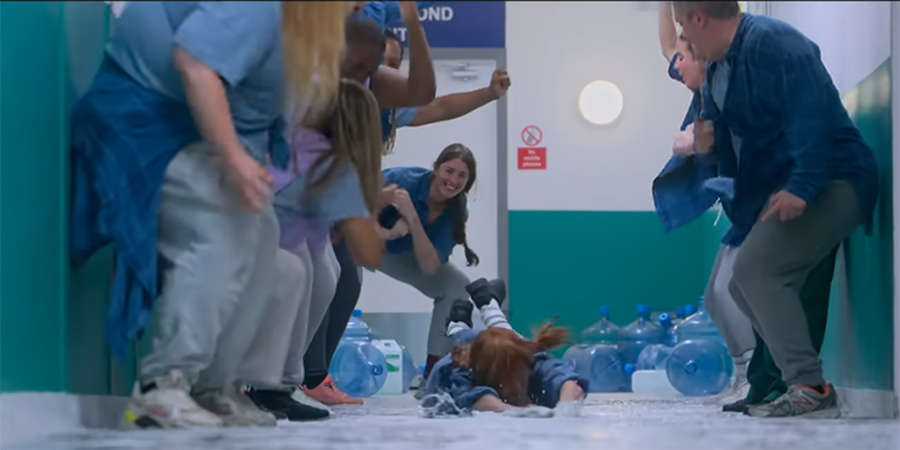
With time of the essence, we decided to shoot the scene in slow motion so you couldn't really tell how fast anyone was going. We dressed a stunt double as Ros (Catherine's character) and had them hide their face as they slid all of 1 meter. We then dropped our documentary style to suit the sequence and filmed a point-of-view shot of the sliders going down the corridor so it felt like they were traveling.
That was most of the sequence covered, but we needed to see Catherine actually doing it or you just wouldn't buy it. Then Greg Duffield, our winning DOP, had the great idea to put Catherine on our track and dolly (mini train track with a seat on it) and slide her towards our camera for our closing shot of the sequence. We got two takes at it and the first one made the cut; crisis averted, the team came together, we got the scene and flooded the set next door due to the excess water.
How important is the edit process?
The cliché is the script is written three times; in pre-prod, while you're shooting and in the edit. The edit being the most important. When you can actually watch a story play out you see where story points are lacking or being repeated and make sure it's all working for the first time viewer. Lucien Clayton, who edited the series, brilliantly crafted the story arcs expertly, juggling many threads and making sure all the pay-offs landed.
He also spent a long time enhancing the show with interstitials and transitions. Catherine and I made a real effort to try to capture more than just what she had on the page by shooting lots of 'b-roll' of the prisoners and Catherine's characters ad-libbing and interacting with each other and the set. This really breathed some life into the prison and you felt like you got to see more of all of the inmates.
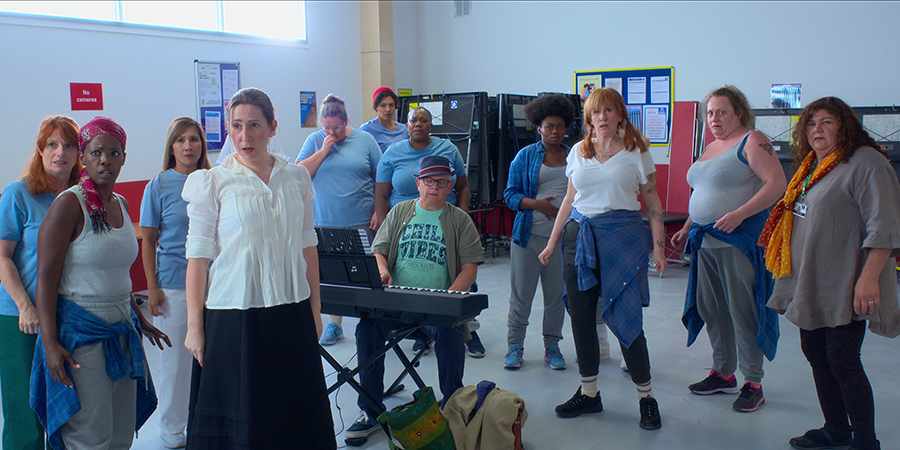
What's next for you?
I'm series directing the next series of Married At First Sight.
I've written and directed a comedy taster with my writing partner Steve Lawrence called Lifeguards that we're pitching to channels, and we're currently developing a new comedy show with Hard Cell's very own Donna Preston.
And, fingers crossed, everyone streams Hard Cell enough on all of their devices that we get to do it all for a second time. It would be a dream twice lived to get to work with Catherine and this wonderful cast again and make another series.
This article is provided for free as part of BCG Pro.
Subscribe now for exclusive features, insight, learning materials, opportunities and other tools for the British comedy industry.


